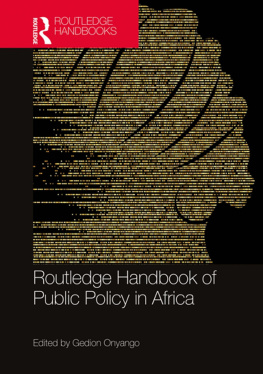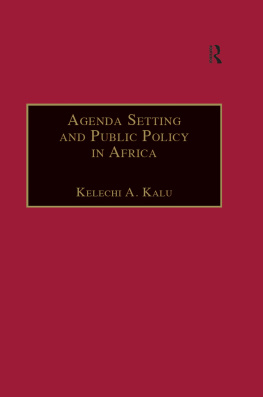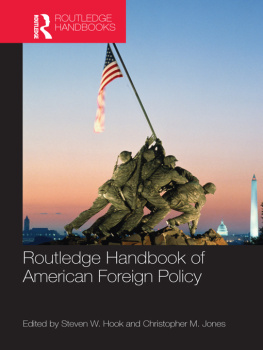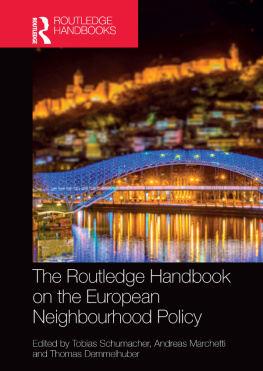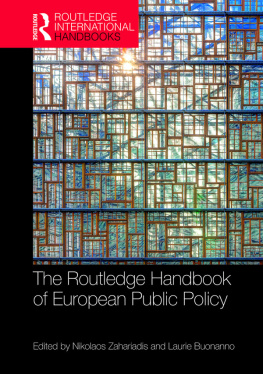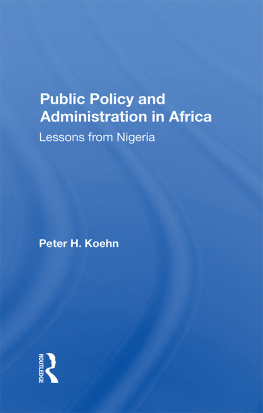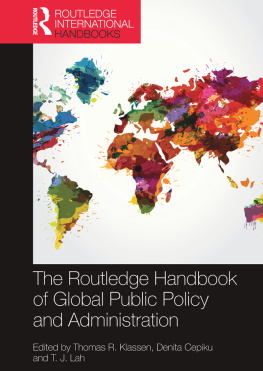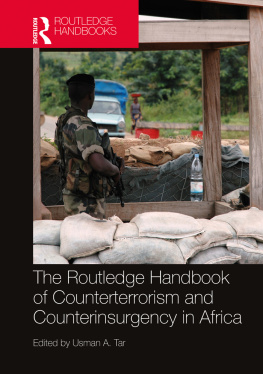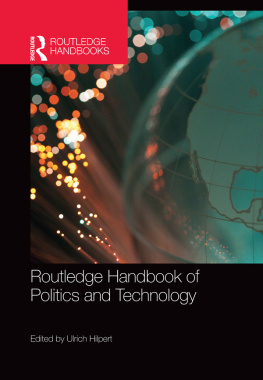This Handbook is very timely as Africa exerts agency in response to COVID-19, global warming, the digital economy etc. It brings together both the old and the new generation of scholars in Africa writing on governance for sustainable development in 2025 and beyond. It treats emerging issues for a public policy like migration, urbanisation, pollution etc. This volume captures contemporary debates and directions and points towards innovative challenges and responses, including the continents burgeoning diaspora. It comes in handy for Development Cooperation professionals, students, and university teachers interested in developing contexts like Africa.
Timothy M. Shaw, PhD, Faculty Fellow, Department of Conflict Resolution, Human Security, and Global Governance; McCormack Graduate School, USA
This is an extremely ambitious book dealing with the making and implementation of public policy in Africa over a long time in diverse countries, both in terms of historical heritage and contemporary political regimes. Gedion Onyango does a wonderful job in introducing the theoretical minefield of studying public policy in Africa as a single problematique. At the same time, the different chapters seek to tell the stories of each nations experience. As a handbook, this publication will be a good resource for both students and teachers dealing with any aspect of public policy in Africa. Scholars researching issues of governance in Africa are likely to include this book in their reference menu.
P. Anyang Nyongo, Professor of Political Science, and The Governor, County Government of Kisumu, Kenya
Why has social and economic development in Africa been so sporadic and uneven? This volume offers insights in terms of the (mis)governance of public affairs. As a first comprehensive review of the state of the art in public policy studies in Africa, it fills a yawning gap in the research literature. Gedion Onyango has drawn together a powerful team of scholars from within and beyond the continent to make the case that the future well-being of Africas people depends in good part on systems of responsive, collaborative, evidence-based decision-making by policy actors inside and outside the state.
Michael Bratton, University Distinguished Professor Emeritus, Michigan State University, USA
This volume assembles a multi-disciplinary team of scholars, practitioners, researchers, and policy experts from leading universities and research organisations across Africa and beyond who analyse different public policy ideas and practicalities faced by African nations today. It provides some unconventional but comprehensive insights on the contextual trajectories and commonalities of public policy and governance in theory and practice across different sectors and states in Africa. Undoubtedly, it will serve as a critical resource in years to come for teaching and training on public administration and policy in Africa and similar contexts in the Global South.
Kempe Ronald Hope, Sr., Development Practice International
This volume is an exceptional contribution to our understanding of the evolution of African states. Its focus on public policy, both with the breadth of topics and depth of coverage, helps the reader understand the challenges and successes of the nuts and bolts of state building in Africa. It takes us from Aristide Zolbergs metaphor of the state leader with multiple phones on his desk that were connected to virtually nothing, to see how those linkages to core state functions have been gradually built. One of its particular strengths is the comparative analysis among several states of key public policy issues and processes. Another is its focus on the research of African scholars. I recommend it most highly.
James S. Wunsch, PhD, Professor Emeritus, Creighton University, USA
Two key challenges have persisted in Africa; first, decision-makers have not understood and implemented sustainable policies at the intersection between politics and policy. Second, the teaching, research, and public policy writing in higher education institutions have been externally-focused, hence difficulties in applying public policy theories to African contexts. This Handbook bridges that lacuna. Many contributions are rich with theoretical and practical insights that provide new policy insights or augmenting existing knowledge bases. I highly recommend it as a stand-alone text for public policy courses and desk reference for African policymakers.
Kelechi A. Kalu, PhD, Professor, Department of Political Science, University Of California Riverside, USA
ROUTLEDGE HANDBOOK OF PUBLIC POLICY IN AFRICA
This Handbook provides an authoritative and foundational disciplinary overview of African Public Policy and a comprehensive examination of the practicalities of policy analysis, policymaking processes, implementation, and administration in Africa today.
The book assembles a multidisciplinary team of distinguished and upcoming Africanist scholars, practitioners, researchers, and policy experts working inside and outside Africa to analyse the historical and emerging policy issues in 21st-century Africa. While mostly attentive to comparative public policy in Africa, this book attempts to address some of the following pertinent questions:
- How can public policy be understood and taught in Africa?
- How does policymaking occur in unstable political contexts, or in states under pressure?
- Has the democratisation of governing systems improved policy processes in Africa?
- How have recent transformations, such as technological proliferation in Africa, impacted public policy processes?
- What are the underlying challenges and potential policy paths for Africa going forward?
The contributions examine an interplay of prevailing institutional, political, structural challenges and opportunities for policy effectiveness to discern striking commonalities and trajectories across different African states.
This is a valuable resource for practitioners, politicians, researchers, university students, and academics interested in studying and understanding how African countries are governed.
Gedion Onyango is a University Lecturer of Public Policy and Administration at the Department of Political Science and Public Administration, University of Nairobi, Kenya.
ROUTLEDGE HANDBOOK OF PUBLIC POLICY IN AFRICA
Edited by Gedion Onyango
Cover Image: ATZ @ iStock
First published 2022
by Routledge
2 Park Square, Milton Park, Abingdon, Oxon OX14 4RN
and by Routledge
605 Third Avenue, New York, NY 10158
Routledge is an imprint of the Taylor & Francis Group, an informa business
2022 selection and editorial matter, Gedion Onyango; individual chapters, the contributors
The right of Gedion Onyango to be identified as the author of the editorial material, and of the authors for their individual chapters, has been asserted in accordance with sections 77 and 78 of the Copyright, Designs and Patents Act 1988.
All rights reserved. No part of this book may be reprinted or reproduced or utilised in any form or by any electronic, mechanical, or other means, now known or hereafter invented, including photocopying and recording, or in any information storage or retrieval system, without permission in writing from the publishers.
Trademark notice: Product or corporate names may be trademarks or registered trademarks, and are used only for identification and explanation without intent to infringe.


